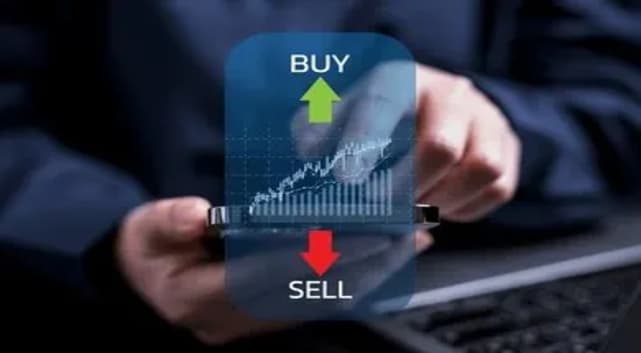Key Takeaways:
- The 2-Minute Valuation Model values Alibaba stock at $92/share in 2 years, implying nearly 10% upside today.
- This is a worst-case scenario valuation. The stock could easily trade at a much higher multiple if sentiment changes for Chinese stocks.
- Analysts and billionaire investors alike are bullish on Alibaba.
- Get accurate financial data on over 100,000 global stocks for free on TIKR >>>
Alibaba stock has fallen over 60% over the past 5 years, reflecting regulatory pressures, slowing growth, and increasing competition in the evolving e-commerce landscape.

Nevertheless, Morningstar continues to rate Alibaba as a wide-moat company, citing its dominant position in China’s e-commerce market and its ability to boost gross merchandise volume through strong customer retention, frequent purchases, and higher average order values.
That said, Alibaba is still working to find the right strategy to handle rising competition from platforms like Douyin while overcoming challenges in expanding its non-physical goods marketplace and growing its international operations.
Despite these hurdles, Alibaba remains a key player in China’s online retail and cloud industries.
At current levels, the stock seems slightly undervalued at worst, offering the potential for significant long-term upside at best.
Alibaba stock could be undervalued. See how you can value stocks quicker with TIKR! >>>
What is the 2-Minute Valuation Model?
There are 3 core factors that drive a stock’s long-term value:
- Revenue Growth: How big the business becomes.
- Margins: How much the business earns in profit.
- Multiple: How much investors are willing to pay for a business’s earnings.
Our 2-Minute Valuation Model uses a simple formula to value stocks:
Expected Normalized EPS * Forward P/E ratio = Expected Share Price
Revenue growth and margins drive a company’s long-term normalized EPS, and investors can use a stock’s long-term average P/E multiple to get an idea of how the market values a company.
Is Alibaba Undervalued?
Forecast
On Alibaba’s Analyst Estimates tab shown below, you can see analysts expect the company to grow revenue at around a 7.4% compound annual growth rate over the next 3.25 years, while normalized earnings per share, or EPS, are expected to fall at roughly 2.6% annually:

View Alibaba’s full analyst estimates >>>
For context, over the past 5 years, Alibaba’s revenue grew at about 14.4% per year, and earnings grew at 3.7% per year. That means sales are expected to slow down slightly going forward.
Valuation Multiple
Alibaba currently trades at around $85 per share, which means the stock trades at about 1.3 times next year’s expected revenue and just 9.3 times next year’s expected earnings.
This is fairly cheap for a business growing revenue in the mid-single-digits.
Alibaba has averaged an 11x forward P/E multiple over the past 3 years, so to be conservative, we’ll use an 11x P/E multiple in our valuation.

Keep in mind that over the past 10 years, the stock has averaged a 22x P/E ratio. If the sentiment around Chinese stocks improves, it’s possible that the stock could trade at a 20x or even a 30x P/E ratio.
We’ll use an 11x forward P/E ratio in our valuation to be conservative.
Fair Value
3.25 years from now, analysts estimate that Alibaba could reach about $8.18 in normalized EPS. At an 11x NTM P/E multiple, that values Alibaba stock in 2.25 years at $90/share. When we tack on an extra $2/share for the dividends that Alibaba is expected to pay, we arrive at a final fair value of $92/share.
(The NTM P/E multiple uses the expected earnings for the next twelve months, so a 2.25-year valuation uses 3.25-year EPS forecast figures. We’re using 3.25-year forecast figures because Alibaba’s fiscal year ends in March, one-quarter of the way through the year.)
With the stock trading at about $85 today, this implies that $BABA could rise 4% per year over the next 2 years, or 8% in total:

This valuation could be seen as the “Bear Case” for Alibaba today, as it relies on just an 11x P/E multiple for the stock.
Analysts and billionaire investors alike are more bullish on Alibaba stock.
Analysts’ Price Target
The consensus analyst price target for Alibaba today is about $121 per share, which means analysts think the stock has just over 40% upside.
The blue line below shows analysts’ estimated upside for $BABA stock over the past 5 years.
When the blue line was high, analysts thought Alibaba stock was undervalued. When the blue line was low, analysts thought Alibaba stock was overvalued.
The black line simply tracks $BABA’s stock price, which crashed in 2021 and has traded fairly flat for the past 3 years.
You can see that analysts have thought the stock was undervalued for the past 3 years and see about 40% upside today:

Find the best stocks to buy today with TIKR >>>
BABA’s Billionaire Shareholders
At this point, you might be wondering, “What makes today any different?”
For three years, Alibaba has appeared undervalued, yet the market has been slow to recognize its potential.
As investors, we rely on the belief that over time, the market will realize a stock’s intrinsic value.
It does seem like Alibaba is poised for eventual multiple expansion and business growth, which is why some of the world’s smartest investors, like Michael Burry and David Tepper, are Alibaba shareholders.
Michael Burry’s Scion Asset Management recently added 29% to their Alibaba holding. Alibaba is Burry’s largest position, and he’s also invested in Chinese companies like JD.com and Baidu:

Additionally, Alibaba is David Tepper’s largest holding in Appaloosa Management. Tepper is also invested in Chinese companies like PDD Holdings and JD.com:

See what billionaire investors are buying today on TIKR.com! >>>
TIKR Takeaway
Using the 2-Minute Valuation Model, Alibaba stock appears fairly valued in a worst-case scenario. However, if market sentiment towards Chinese stocks improves, there’s significant potential for the stock to rise over time.
Of course, this is just a valuation exercise. No one knows where a stock is headed in the short term, and few can predict where a stock is heading in the long term.
The TIKR Terminal offers industry-leading financial data on over 100,000 stocks and was built for investors who think of buying stocks as buying a piece of a business.
Disclaimer:
Please note that the articles on TIKR are not intended to serve as investment or financial advice from TIKR or our content team, nor are they recommendations to buy or sell any stocks. We create our content based on TIKR Terminal’s investment data and analysts’ estimates. We aim to provide informative and engaging analysis to help empower individuals to make their own investment decisions. Neither TIKR nor our authors hold positions in any of the stocks mentioned in this article. Thank you for reading, and happy investing!






